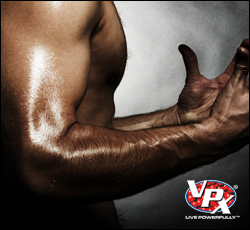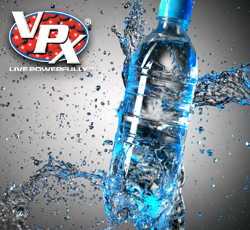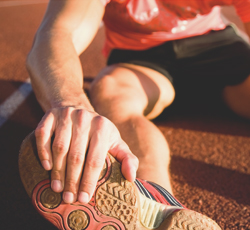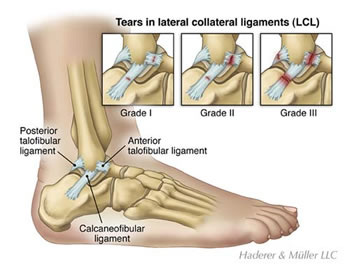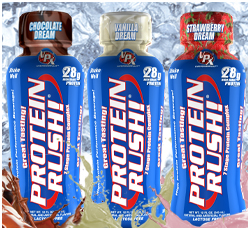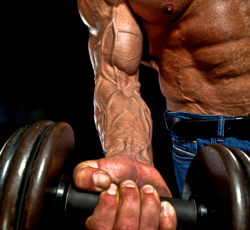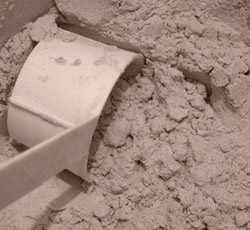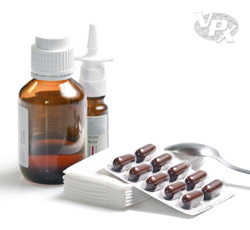Besides training, which causes a break down in muscle tissue, there are two other important ways your body causes muscle damage. With these other ways there are measures you can take to prevent damage from happening. During weight training, the body has a natural feed-back loop of recovery and adaptation, making it an overall anabolic process (with proper nutrition and supplementation). Some clinical ways to test for muscle damage is by identifying biochemical markers such as CPK, LHD and 3-methylhistidine since they can be readily found in urine and blood samples when the muscle tissue is broken down or torn. Another way is to test for free radicals and cortisol levels in blood plasma; these are the areas where you can put forth an effort to prevent catabolism.
Welcome to the VPX Sports Supplement Blog
In November, I ran one of the best races of my life and completed 60 miles with Team VPX at World’s Toughest Mudder. Our team finished more laps than any other team at night and earned the coveted “Black Ops” award. Unfortunately, those 60 miles really did a number on my body and I ran the last 30 miles with a torn meniscus. Since then I have been “benched” from all activity involving my left leg. I spent 1 month on crutches, then the next month hobbling around with a limp. I was not allowed to ride an exercise bike, use an elliptical, run, hike, or even walk more than needed! At some moments I really went crazy as my mind and body suffered from lack of exercise… but I had to find a way to cope and this is what helped me:
Topics: recovery, training injury
You’ve been tackling mile after mile of obstacles, braving cold waters, completing tire flips and leaping over finish line fires. You’re standing triumphantly at the finish line with a medal around your neck and smile on your face.
Topics: training tips, recovery, OCR, obstacle course racing
Listening to your body and understanding your limits can be a difficult thing to recognize for athletes at any level. Most athletes who exercise regularly have no problem taking rest days to recover; however some athletes who train too frequently for specific athletic events, may see signs of overtraining syndrome. Proper rest and active recovery days can benefit your body to repair muscle fibers that are often fatigued and stressed during constant training. Common symptoms of overtraining syndrome include: washed-out feeling, tired, drained, lack of energy, mild leg soreness, general aches and pains, pain in muscles and joints, sudden drop in performance, insomnia, headaches, decreased immunity and damage to the central nervous system over time.
Topics: fitness training, training tips, recovery
Learning the difference.
*Disclaimer - I am not a medical professional nor claim to be. Everything in this article is from my own experience and does not constitute medical advice.
Topics: fitness training, recovery, team xtreme, training injury, injury tips
Almost all of us at one time in our life have had an ankle sprain. In fact, according to American Academy of Orthopedic Surgeons, 25,000 people sprain their ankle each day! Although most ankle sprains are commonly self-diagnosed, if not treated properly, they can lead to repetitive ankle sprains causing further damage and chronic ankle instability.
Topics: vpx, recovery, team xtreme, training injury, injury tips
We all know post-exercise re-feeding is crucial to reap the benefits of training, particularly high-intensity exercise. In a recent study conducted by Lynch et al. (2012), VPX Protein Rush® was compared to an isocaloric “ade” (iCHO) on performance indices following high-intensity resistance training (HIRT..pun intended!). The goal was to determine which macronutrient drink supported repeated performance. Fifteen healthy, 21-44 year old male subjects performed a 15-18 minute HIRT workout then immediately drank either VPX or iCHO. Following a two hour fast, the subjects performed an agility T-test, push-up test, 40-yard sprint, and reported rate of perceived exertion. After a one-week washout the subjects repeated the protocol with the opposite treatment (they acted as their own controls). While controlling for caloric intake and energy expenditure, it was found that VPX produced a significantly (p < .01) larger interaction effect between the performance tests following glycogen depleting exercise compared to iCHO. The RPE effects were similar between the two drinks.
Topics: vpx, protein, muscle building, recovery, supplements, sports supplements
Have Your Muscles Stopped Growing? Want to Know Why?
Posted by VPX Sports on Jul 22, 2013 9:07:00 AM
Are you one of those gym rats who spends endless hours in the gym day in and day out working hard to improve your physique but don’t see any difference in your body? You believe that the more work you do, the better off you will be. Believe it or not, you might be doing more harm to your body than good when training so much. As a result, you might not be seeing any of the results you want. If you are experiencing any of these symptoms listed below, you may be over-training.
Topics: fitness training, muscle building, muscle, recovery
Protein is one of the biggest macronutrient necessities in the body. It is needed to repair, rebuild and replenish damaged muscle tissue after exercise. So whether you’re a power lifter, marathon runner, or a bodybuilder, if you want your body to perform at its peak, you need ample amounts of protein.
Topics: protein, nutrition, muscle building, recovery, supplements, sports supplements
They say that seasons change and people change, but one thing that doesn't change is the fact that the common cold is a rampant virus that affects over 1 billion people a year. The debate whether the common cold is curable has been ongoing with two very conflicting sides. On one side there are people that believe that there is nothing that you can do to alleviate or cure the common cold. The other side is those that believe you can alleviate and cure the common cold with both pharmaceutical and homeopathic methods. In this week’s blog I will take neither side, but present to you some strong arguments for both sides.
Topics: health, health and fitness, recovery, myth or fact

